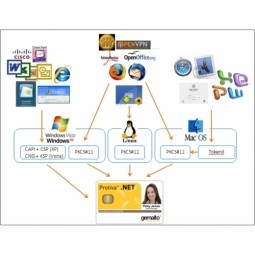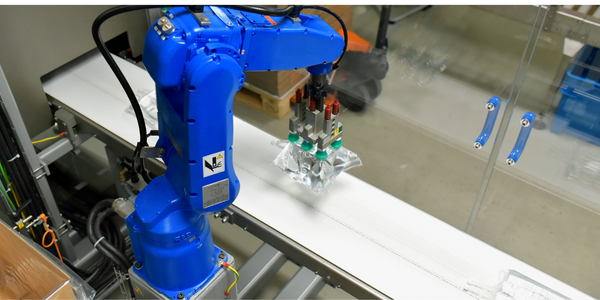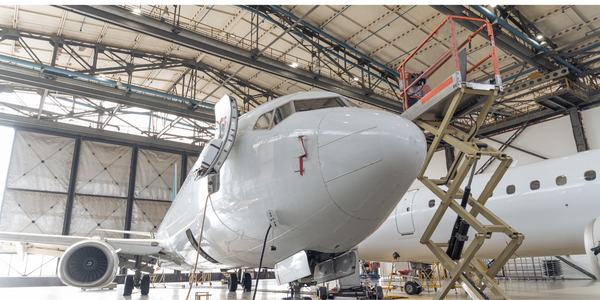下载PDF
Altair PBS Professional™ at the Translational Genomics Research Institute (TGen): Accelerating Genomic Discoveries
技术
- 基础设施即服务 (IaaS) - 云计算
- 处理器与边缘智能 - 嵌入式操作系统
适用行业
- 生命科学
适用功能
- 维护
- 产品研发
用例
- 现场人员安全管理
- 时间敏感网络
服务
- 系统集成
挑战
转化基因组学研究所 (TGen) 需要一个供应商支持的解决方案,可以在其 512 节点生产集群 Saguaro 上提供灵活的作业调度。 TGen 的使命是将人类基因组知识转化为治疗和诊断,这是一项需要大量计算资源的任务。该研究所建立了高性能生物计算中心 (HPBC) 来提供这些资源,但他们需要一种解决方案,能够处理跨多个节点的大型作业的调度,同时还能在单个节点上运行数千个小型串行作业。该解决方案还需要易于安装,并且几乎不需要支持。
关于客户
转化基因组学研究所 (TGen) 是一个由亚利桑那州、亚利桑那州市政府、印第安部落社区、教育机构、私人基金会和企业实体共同创建的非营利组织。 TGen 的使命是将人类基因组知识转化为治疗和诊断学。为了实现这一目标,TGen 建立了高性能生物计算中心 (HPBC),以提供发现遗传变化如何影响疾病进展和治疗耐药性所需的计算资源。 TGen 在 Saguaro 上拥有大约 65 个账户,其中大部分在 TGen 内部,但也包括亚利桑那州立大学和其他研究机构的科学合作者。
解决方案
TGen 选择 Altair 的 PBS Professional 是因为其灵活性和安装简便性。 PBS Professional 能够满足 TGen 的需求,能够在多个节点上运行大型作业,同时还在单个节点上运行数千个小型串行作业。该软件易于安装,几乎不需要任何支持,这使其成为 TGen 的理想解决方案。 PBS Professional 还提供会计功能,使 TGen 能够跟踪运行的作业数量以及每个作业所花费的时间。展望未来,TGen 计划升级到 PBS Professional 的新版本,该版本提供作业阵列、冗余和故障转移等功能。这些功能将帮助 TGen 应对对 Saguaro 资源不断增长的需求。
运营影响
数量效益
相关案例.

Case Study
Corporate Identity Solution Adds Convenience to Beckman Coulter
Beckman Coulter wanted to implement a single factor solution for physical and remote logical access to corporate network. Bechman Coulter's users were carrying smart card badges for doors, but also needed a one-time password token to access to our corporate network when they were not in the office. They wanted to simplify the process.

Case Study
Embracing Business Success in Real Time
· Increase control over growing Big Data to improve business decisions · Manage data for 28,000 biotechnology stockkeeping units in the fields of microbiology, molecular biology, animal cell cultures, plant tissue cultures, and lab ware for laboratory chemicals · Accelerate report generation and analysis with real-time data

Case Study
Flow Robotics: Scaling Up Production and Accelerating Product Development with IoT
Flow Robotics, a Danish manufacturer, developed flowbot™ ONE pipetting robots to alleviate the strain on bioanalysts in life-science laboratories and hospitals across Europe. These robots were designed to automate part of the testing process, speeding up the time it takes to produce results and reducing pressure on staff. However, the company faced challenges in scaling up production and accelerating product development. High workloads and physically challenging conditions have long been an issue for laboratory professionals. Flow Robotics estimates that around half of medical lab technicians carry out the same arm movements for at least a quarter of their working day. The American Society for Clinical Pathology reported that 85% of laboratory professionals feel burnt out; 36% struggle with inadequate staffing; and 32% face a heavy workload and pressure to complete all testing on time.

Case Study
Revolutionizing Aerospace Industry with 3D Printing: A 63% Lighter Titanium Part
GE Aviation, a renowned name in the aerospace industry, recognized the potential of 3D printing technology in transforming the sector. The primary challenge was to reduce the weight of the aerospace parts, which would directly impact the fuel costs. A lighter airplane would mean lower fuel consumption, leading to cost savings and a smaller carbon footprint. However, achieving this weight reduction without compromising the strength and functionality of the parts was a significant challenge. Traditional manufacturing methods were not able to provide the desired weight reduction while maintaining the required stiffness and strength of the parts. The challenge was to find a solution that could create strong, light, and functional aerospace parts.
Case Study
Material Intelligence at Ethicon: Sustaining Medical Device Manufacturability and Improving Patient Care
Ethicon, a world-class medical devices company, faced several challenges in its operations. The rapid selection of manufacturing materials compliant in global markets was critical to assure patients, practitioners, and purchasing organizations of the biocompatibility of their medical devices. Ensuring supply chain continuity and minimizing risks of obsolescence for medical devices due to regulatory changes were also crucial in meeting Ethicon’s ongoing commitment to maintaining patient care. Furthermore, the engineers at Ethicon were developing the next generation of medical devices and needed to access historical material data to accelerate new product development. The process of centralizing and digitalizing its materials information was a significant challenge that Ethicon needed to overcome.
Case Study
IWT's Transformation: Customizing with Efficiency in IoT
IWT, a company specializing in the design, manufacture, and installation of washing systems for the life sciences and pharmaceutical industries, faced a significant challenge in managing its wide product portfolio. The company manufactures 45 different models, 60% of which are customized to some degree. This high level of customization, combined with limited production quantities, necessitated a controlled process for managing the release of engineering changes. The goal was to achieve efficiency, reduce process time, and better coordinate production throughout the organization. The need for strict compliance in heavily regulated industries further complicated the situation. IWT's existing PLM journey with Dassault Systèmes’ SOLIDWORKS for 3D CAD and Enovia for managing CAD data and Bills of Materials (BOMs) was proving inadequate. The system had limited part classification, no workflow, and no tool to ensure data consistency. The management of non-CAD documents was also a challenge, with information often difficult to find and access.





